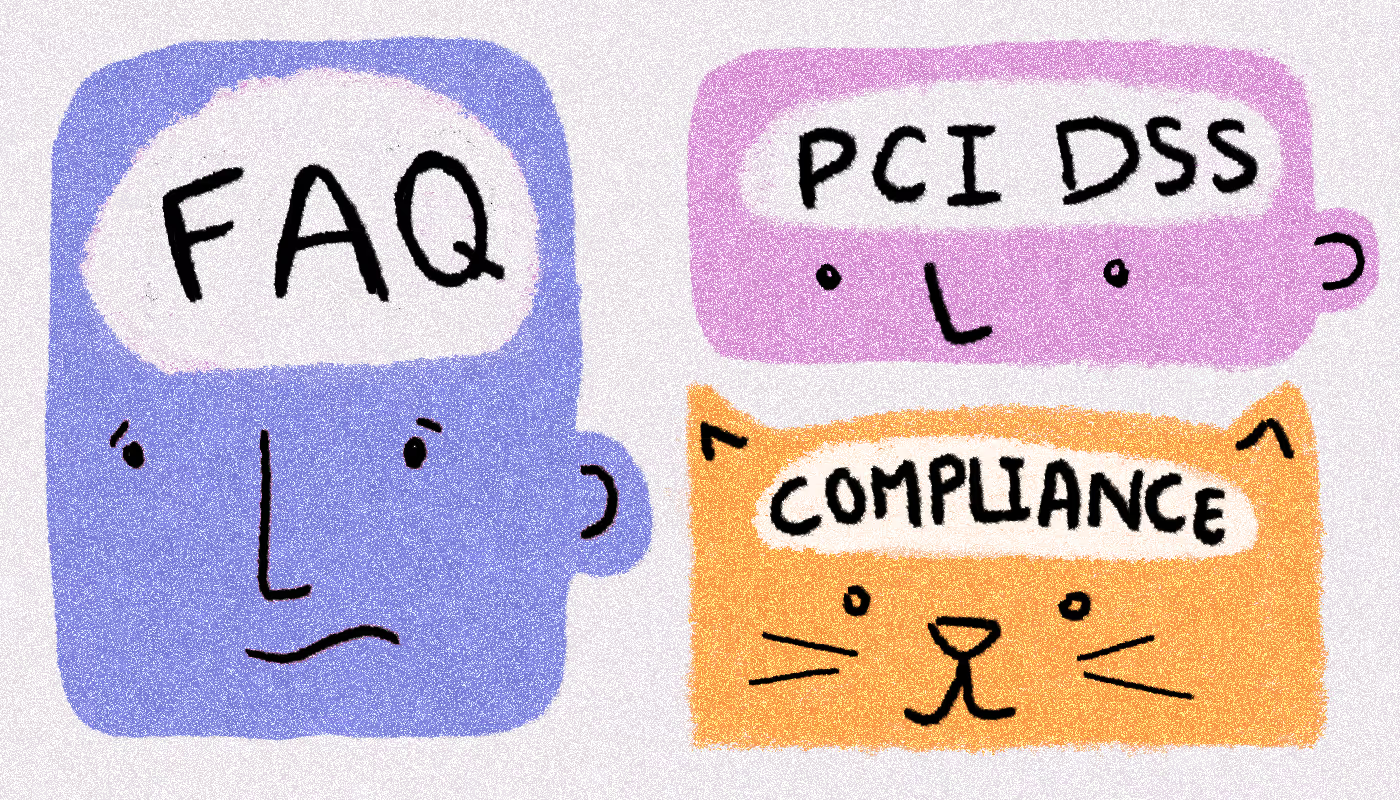PCI DSS Compliance FAQ: What is PCI Compliance?
Learn about the fundamentals of PCI DSS Compliance.

Learn about the fundamentals of PCI DSS Compliance.

As you might expect, we get a lot of questions about PCI DSS Compliance. Here are the answers to your most frequently asked questions!
The Payment Card Industry Data Security Standard (PCI DSS) was established in 2006 by the major card brands (i.e., Visa, MasterCard, American Express, Discover Financial Services, JCB International).
All businesses that process, store, or transmit payment card data are required to implement the standard to prevent cardholder data theft. Your card-handling practices and processing environment determine which PCI DSS requirements apply to your business.
The Payment Card Industry Security Standards Council mandates that all merchants comply with the PCI standard. Annual validation (or proof) is mandated by some merchant processors and is a way of documenting your compliance. Validation requirements vary based upon annual payment card transactions and may require a self-assessment or independent onsite audit.
All businesses that process, store, or transmit payment card information are required to comply with the PCI DSS.
PCI compliance was first mandated in 2006. The Payment Card Industry Security Standards Council, the card brands, and your merchant processor are doing their best to make sure all merchants are aware of the standards.
The government does not regulate PCI*; however, when you signed your payment card contract—and confirmed your desire to accept credit and debit cards at your business—you agreed to follow card brand rules. If you wish to safely accept Visa, MasterCard, JCB, American Express, and Discover, you must comply with PCI DSS.
*Note: Some states, including Nevada, Minnesota and Washington, have incorporated PCI DSS compliance into their state laws.
For most merchants, the deadline for compliance has already passed. Contact your merchant processor to receive details on your merchant account. The sooner you become compliant, the less likely you are to be hacked.
If you are not PCI compliant, you are more vulnerable to data compromise, and may also be fined by your merchant processor and/or the card brands for not validating PCI compliance.
Yes. Even if you only process one transaction per year, you must implement the PCI DSS in your processing environment.
See also: 10 PCI Security Standard Myths
See also: Is Your E-Commerce Business PCI Compliant?
The PCI SCC released PCI DSS version 4.0 in April 2022. PCI DSS 4.0 brought with it some extensive changes, including new password requirements and additional guidance about ecommerce security.
The changes in PCI DSS 4.0 are intended to introduce new requirements, changes and clarifications to help businesses navigate new and increasingly common security threats.
Read more about PCI SAQ types.
Some QSA/ASV companies provide certificates confirming that an organization is PCI DSS compliant. An actual compliance certificate is not mandatory, and you don’t necessarily need a certificate to be PCI compliant.
Unfortunately, no. An SSL/TLS certificate is an important element in a secure website, but alone does not meet PCI DSS requirements.
Yes. PCI compliance doesn't require a connection to the Internet or even a computer system. PCI compliance is determined by the way that you store, handle, or process credit card information, whether the card information is in a locked filing cabinet or on the computer.
Generally speaking, your merchant bank enforces PCI DSS compliance. The PCI Standards Security Council was formed in 2006 by the major card brands (i.e., Visa, MasterCard, American Express, Discover Financial Services, JCB International) to regulate, maintain, evolve and promote PCI DSS compliance.
See also: How Much Does PCI Compliance Cost?
Disconnect your system from the Internet, call your merchant processor, and call a forensic investigator. PCI forensic investigators help you find and fix the security holes in your processing environment. They help you identify how and when attackers breached your systems, determine if card data was compromised, and document for the card brands your efforts to remediate the vulnerabilities that lead to the data breach.
See also: The 6 Phases in an Incidence Response Plan
SecurityMetrics helps businesses get PCI compliant. We help merchants validate compliance and implement the Payment Card Industry Data Security Standard. SecurityMetrics is an Approved Scanning Vendor and is certified to perform PCI scans, onsite PCI audits, payment application software audits, point-of-sale terminal security audits, penetration tests, and forensic analysis (to assess card data compromises.)
You should log in to your account and begin the process of becoming PCI compliant. Start by going through each section of the SAQ.
If you have more questions about PCI Compliance or anything related to data security, contact one of our experts.